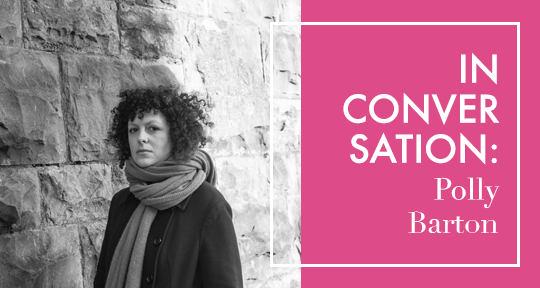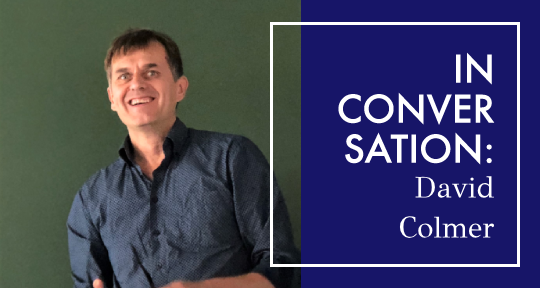At page 124 of Polly Barton’s Fifty Sounds, I found myself smiling impossibly wide, reading out loud to the empty room: “Kyuki-kyuki . . . The sound of a pen writing on a whiteboard.” Part of the joy that pervades and grows in reading this “memoir-dictionary” is in its subtle invitation to speak: to feel, as the author says, the “sensory bombardment” of encountering each new word, and the world that arrives with it. Written in fifty essays that each orbits off—sometimes tangentially, sometimes straightforwardly—from one of Japanese language’s vast selection of onomatopoeic words, the book generates a curious, sensual portrait of Barton’s life in Japan as a young woman, informed by the Wittgensteinian notion of language being defined by its utility, and in similar spirit to Lyn Hejinian: “Language . . . nearly is our psychological condition.” Through explorations of how the myriad self comes to match and distinguish itself from the world in words, Fifty Sounds creates an ecstatic realm of what happens in, between, and across languages—and the people who speak them.
Barton is a prolific translator from the Japanese; her repertoire includes Akutagawa winners like Tomoka Shibasaki’s Spring Garden and bestsellers like Misumi Kubo’s So We Look to the Sky, as well as English PEN Awards for Aoko Matsuda’s Where the Wild Ladies Are and Kikuko Tsumura’s There’s No Such Thing as an Easy Job. Though we’ve spoken to her in the past about her translation work, I wanted to hear more about the linguistic and textual discoveries that catalysed this desire to work with language, in the quiet and admiring affinity between all people who love words and their secret conspirations. I spoke with Polly on-screen in our opposing time zones; she answered my questions in thoughtful bursts of speech that carried with them a vivid, various nature, her hands occasionally gesturing at the immeasurable distance between us, that which only language can attempt to breach.
Xiao Yue Shan (XYS): Did Fifty Sounds begin in its current structure?
Polly Barton (PB): Not at all. I started working on it when I’d just got back to the UK after years of living in Japan, and at first, it was just notes for essays about the Japanese language. The inclusion of the onomatopoeia happened quite naturally, but the “fifty sounds” structure came about when I started writing the proposal for the [2019 Fitzcarraldo Editions] Essay Prize; I wanted to do it as a way of consolidating my thoughts, because I felt like there was meat in there and I was really enjoying writing about it, but it was kind of all over the place.
But the more I was writing, the more this concept started coming to me, and it seemed so out there that even while I was writing, I was thinking, can I do this? Can I write a memoir in fifty essays about Japanese onomatopoeia? Still, the callout for the contest said, “rewards ambitious writing,” so I was like, they want ambitious, I’ll give them ambitious. It’s funny because I am so grateful for that structure. It was just a crazy idea I hit upon, but I think it was very good for me to have that as a constraint, to start over fifty times—so I could do some sections like prose-poems, and a couple bits that are more academic.
XYS: Freedom dressed up as a constraint. There are definitely pieces that feel as though they could be portioned into separate texts, but because all the sections are encompassed in the umbrella of one experience, it feels cohesive.
PB: I don’t know if I intended this, but the experience of being in Japan, and learning Japanese, was so chaotic to me. I think a lot of people who learn a different language when they grew up and live in another culture—particularly one where they’re visibly different from most people around them—do have this real panoply of conflicting experiences, and the book is about embracing chaos in a way.


